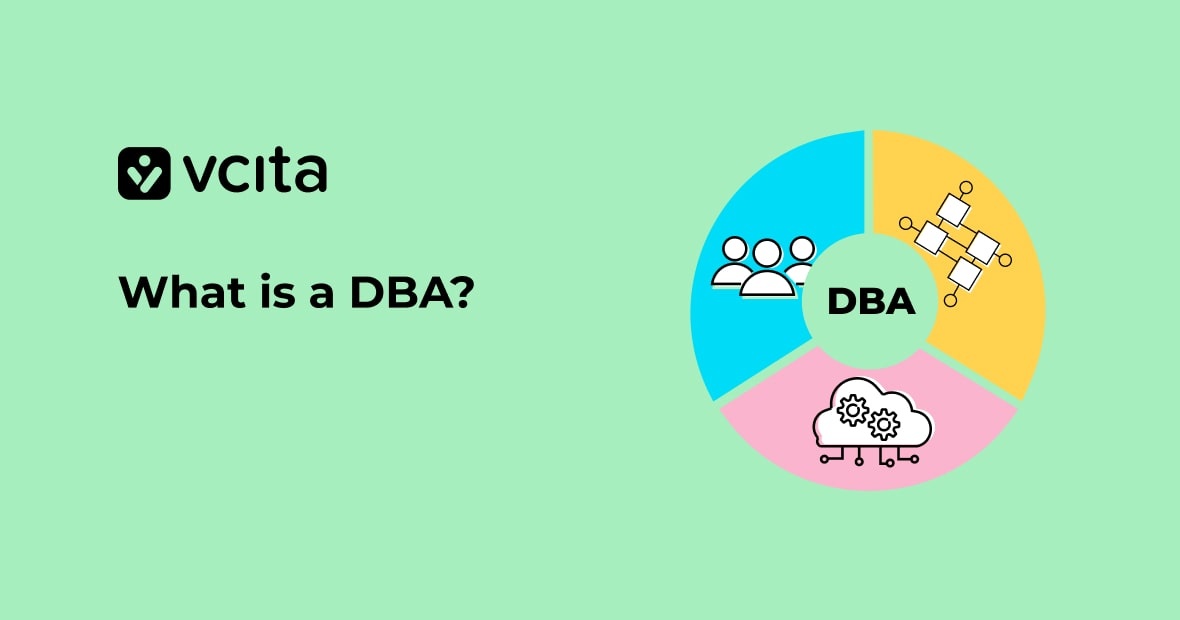Have you dreamed of opening your own business, and you’re wondering what a DBA is? Don’t worry, you’re not alone. DBA, or “doing business as,” is a crucial concept for small business owners like you to understand.
It’s all about how you structure your business and protect your personal assets. Whether you’re a sole proprietor or thinking about forming a limited liability company, knowing when and how to register a DBA can make a big difference. It affects everything from opening a business bank account to the legal name you’ll use to conduct business. Read on to demystify DBAs and set yourself up for success.
What is a DBA, and why do you need one?
DBA stands for “Doing Business As,” and it’s a crucial concept for many small business owners. Essentially, a DBA allows you to operate your business under a name different from your legal name or the official name of your business entity.
Why you need a DBA
DBA registration is often necessary if you’re a sole proprietor or partnership wanting to use a name other than your personal name for your business. It’s also useful for corporations or LLCs that want to operate under multiple names.
The benefits of setting up a DBA
Setting up a DBA can offer several advantages:
- It allows you to open a business bank account under your business name
- It helps you comply with legal requirements in states that require DBAs
- It provides a way to test new business ideas without forming a new legal entity
When do you need a DBA?
You might need to register a DBA if:
- You’re a sole proprietor wanting to use a business name
- Your LLC or corporation wants to operate under a different name
- You’re expanding your business into new product lines or services
How to choose the right DBA name for your business
Selecting the perfect DBA (Doing Business As) name is crucial for your small business success. When registering a DBA, you want a name that’s both memorable and reflective of your brand.
Brainstorm and research
Start by brainstorming names that align with your business structure and goals. Consider your target audience and the type of businesses you’re competing with, and research your competitors’ names to ensure yours stands out. Remember, your DBA name doesn’t have to match the legal name of your business, giving you more creative freedom.
Keep it simple and memorable
A catchy, easy-to-remember name can work wonders for your brand. Avoid complex words or spellings that might confuse potential customers. Think about how it sounds when spoken aloud, and check it’s easy to pronounce and recall.
Check availability
Before you get too attached to a name, make sure it’s available. Check if the domain name is free, and search for existing trademarks. Some states require DBA registration, so verify if your chosen name is already in use locally.
Consider future growth
Choose a name that allows for expansion. A name that’s too specific might limit your business as it grows. For example, “Joe’s Cupcakes” might be restrictive if you later want to sell other baked goods.
Remember, your DBA name is often the first impression customers have of your business. Take your time, be creative, and choose wisely.
DBA vs other business structures: LLC, sole proprietorship, partnership
When you’re starting a small business, understanding what DBA is and how it compares to other business structures is crucial.
DBA: flexibility without legal protection
A DBA, or “Doing Business As,” isn’t a legal entity itself. It’s more like a nickname for your business. DBA registration allows you to conduct business under a name different from your legal name.
This is great for sole proprietors or partnerships who want a catchy business name without forming a separate legal entity. However, a DBA doesn’t provide liability protection. Your personal assets could be at risk if your business faces legal issues.
LLC: the best of both worlds
A Limited Liability Company (LLC) offers more protection. It’s a separate legal entity that shields your personal assets from business debts. Plus, you can use a DBA with an LLC if you want to operate under multiple names.
Sole proprietorship and partnership: simple but risky
A sole proprietorship is the simplest business structure, suitable for just you, while a partnership involves two or more people. Like a DBA, it’s easy to set up but doesn’t offer liability protection.
Remember, the business structure you choose can impact everything from taxes to legal protection. Consider consulting a professional to determine the best fit for your small business goals.
The DBA registration process step-by-step
Wondering how to set up a DBA for your small business? Let’s break down the process into manageable steps. Registering a DBA isn’t as daunting as it might seem, and it can open up new opportunities for your business structure.
Check your state’s requirements
First you’ll need to research what your state requires for DBA registration. Some states are more relaxed, while others have strict guidelines. It’s crucial to understand these requirements before you dive in.
Choose your DBA name
Next up, pick a catchy name that represents your business. Remember, this is what customers will see, so make it count. Just be sure it’s not already taken by another business in your state.
File the paperwork
Now you’ll need to fill out a DBA application form, which typically asks for details about your business structure and the legal name of your business. Don’t worry; it’s usually straightforward.
Pay the fees and wait
After submitting your application, you’ll need to pay a registration fee. The cost varies by state, so be prepared. Then, it’s just a waiting game. Processing times differ, but you’re one step closer to operating under your new DBA name.
Tips for successfully operating under a DBA
Operating under a “Doing Business As” (DBA) name can be a smart move for your small business, but it requires some savvy management. Here are some tips to help you make the most of your DBA registration:
Keep your finances separate
When you set up a DBA, it’s crucial to open a business bank account using your new trade name. This separation helps protect your personal assets and simplifies tax reporting. Remember, a DBA doesn’t provide liability protection like a limited liability company would, so maintaining clear financial boundaries is essential.
Stay compliant with state requirements
Different states require various steps for registering a DBA and maintaining it. Some may need you to publish a notice in local newspapers, while others might ask for periodic renewals. Stay on top of these requirements to ensure your business remains in good standing.
Leverage your DBA for branding
Your DBA is more than just a legal formality – it’s a powerful branding tool. Use it consistently across all your marketing materials, from your website to your business cards. This consistency helps build recognition and trust with your customers.
Understand the limits
While a DBA allows you to conduct business under a different name, it doesn’t change your business structure. If you’re a sole proprietor or partnership, you’ll still need to consider additional steps for liability protection. Remember, a DBA is a way to operate under a different name, not a separate legal entity.
Make the right DBA choices for your small business
Now that you know all about operating under a DBA, you can make big decisions about your business structure. Registering a DBA can be a smart move, and give you flexibility to conduct business under a different name without forming a whole new legal entity. Just remember that it doesn’t provide liability protection like an LLC would. It’s all about flexibility and creating new opportunities for your small business to thrive.




























